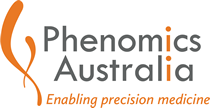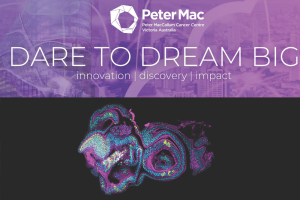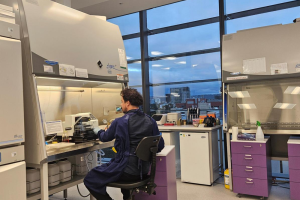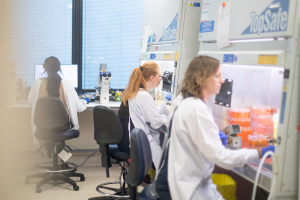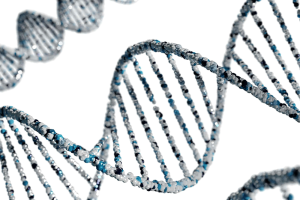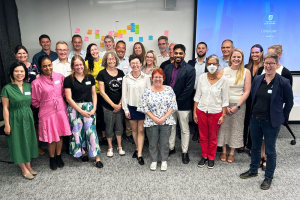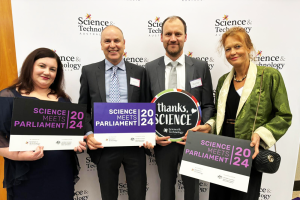New research published in Science Advances conducted by researchers at Peter MacCallum Cancer Centre and supported by Phenomics Australia identified a potential new treatment for two challenging blood cancers that could help more patients than originally thought.
Associate Professor Nicholas Clemons, Group Leader in the Cancer Evolution and Metastasis Program at Peter Mac, said “Using a genome-wide pooled CRISPR screen, our research highlighted an additional mode of action for the treatment known as eprenetapopt opening up its potential to work in a broader group of acute myeloid leukaemia (AML) and myelodysplastic syndrome (MDS) patients”.
“The treatment was initially thought to only target patients with the TP53 mutation however we believe it could be beneficial to substantially more patients.
”AML is a type of blood cancer known as leukaemia. It is characterised by the bone marrow producing too many immature white blood cells. This stops the marrow from being able to make normal blood cells.
Dr Kenji Fujihara, a PhD student in the Clemons lab when he performed the project, said “We believe this treatment will work well in AML patients that accumulate iron as we uncovered that eprenetapopt triggers a cell death called ferroptosis that is reliant on iron”.
“This is an exciting development as cancer cells can become resistant to the usual means of cell death known as apoptosis.”
Associate Professor Clemons said the treatment is currently undergoing clinical trials and the research discovery will hopefully enable more patients who need new treatment options a chance to beat their cancer.
“We’re now also interested in finding out what other cancers outside of AML/MDS might benefit from this new activity of the drug,” he said.
Myelodysplastic syndrome changes into acute myeloid leukaemia in approximately 30 per cent of people and in Australia around 900 people are diagnosed with AML each year. Only ten to 15 percent of AML patients carry the TP53 mutation so opening the treatment to a broader group is very beneficial.
Azacitadine is the only approved treatment available for MDS and AML and is successful in achieving a complete remission in 14 per cent and seven per cent of patients respectively.
The research is published in Science Advances.
‘We had never done pooled CRISPR screens in the lab before, so VCFG helped us with all the complex optimisation, and produced QC verified virus of the CRISPR library for our experiments. This is a complicated process and not something that we had the capacity to do ourselves. Overall, the VCFG enabled us to go from idea to data in a time frame that would have been impossible if we were trying to do it ourselves.” A/Prof Clemons.
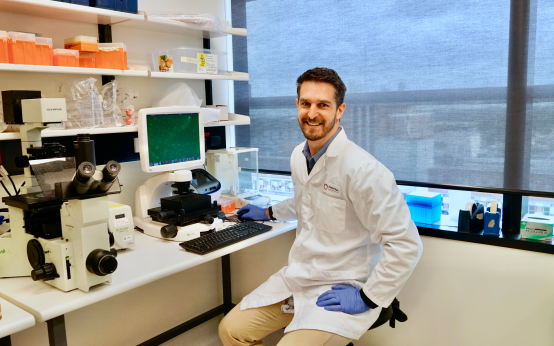
- Need a strategy to determine resistance in your cell line model?
- Interested in biomarker discovery in your patient samples or in your in vivo model?
- Want to know how you can perform synthetic lethality screens?
- Do you know what genes are essential in maintaining your cell viability?
CRISPR screening enables you to answer all these questions and then more – what do you want to discover?
Connect with Henry.Beetham@petermac.org at the VCFG if interested in running a pooled CRISPR screen.

Additional information
This story was first published at Peter MacCallum Cancer Centre: –New treatment for acute myeloid leukaemia could prove beneficial for even more people
